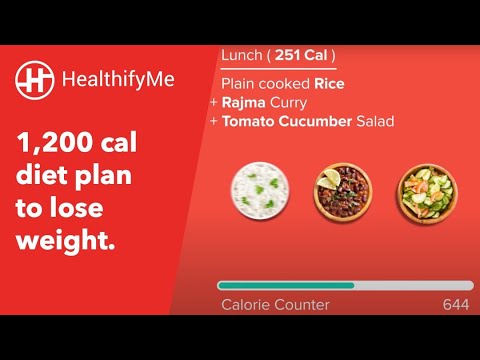
One of the biggest challenges when it comes to creating good habits is remembering to do them. One example is to not eat the first meal of each day. Or maybe you want to avoid eating on the weekends. There are many ways to remember to make small changes. Here are some helpful tips.
Be mindful not to eat.
There are many options to avoid mindless food when you're trying to lose weight. You can keep track of your food intake by keeping a food diary. You will also be able to see when you feel hungry and whether you are actually hungry. Instead of snacking, drink water or eat healthy food if you feel the urge to. To combat mindless eating, try to add fiber to your diet. You can also track your food intake with diet tracking apps.

Do not eat the first meal of each day
While it is widely believed that breakfast is an essential part of your diet, many people don’t actually need to have one. It is just as healthy to eat a light meal, without adding calories, fat, and sugar. Consider waiting until later in your day if breakfast is not something you enjoy. This will allow you to still have enough time for a nutritious, healthy lunch or dinner.
Do not eat on weekends
Watch your portions if you want to lose weight. You're more likely than not to eat as much food on weekends. Skip the appetizers and bread basket if you are going out for dinner. Focus on salads with lean proteins. Ask for lemon water and a take-out box to reduce the portion size. You can get more out of meals these days if you split the meal with a friend.
Avoid eating at a dinner table
For many people, avoiding eating at the dinner table is not easy. But it can help you stick to your weight loss diet and lose weight faster. You can improve the quality of your food by eating mindfully and reduce snacking. You can also reduce your snacking by avoiding the temptation to grab a snack before dinner. This can help to lose weight in a healthier manner. You should give it a go!

Avoid fast food
It is very easy to eat fast food while on the go. It's convenient, easy, and cheap. But it's important not that you make it a lifestyle. If you are aware of what to avoid and which foods are better, it is easy to eat fast-food. Here are some helpful tips for making healthy fast food choices. Try to find a balance between fast and healthy food.
FAQ
How long does it take to lose weight?
Weight loss takes time. It usually takes six to eight months to lose 10%.
Remember that you should not expect to lose weight in a matter of hours. Your body will take time to adjust to changes in diet.
This means you need to gradually alter your diet over several weeks or days.
Also, you should stop taking fad diets because most of them don't work. Instead, try to change your daily routine.
Consider, for instance, that you often eat unhealthy snacks late at the night. You need to reduce this behavior.
Eat healthier meals earlier in evening. This will help you avoid snacking at night.
Water is essential for your body. Water is essential for keeping your body hydrated. Dehydration can cause you to feel tired and sluggish.
It is important to drink plenty of water throughout each day to stay energized.
Doing things that are relaxing can help you reduce stress. You could spend quality time with your loved ones.
You could also choose to read books, see movies, or listen music.
These activities will help to relax and unwind from stressful situations. These activities will help you improve your mood and self-esteem.
You should consider your health when trying to lose weight.
Your overall health is directly related to your physical fitness. You should eat right and exercise regularly if you want a fit body.
What Weight Loss Can You Expect In One Week?
The amount of weight that you can lose will depend on how high your body fat percentage is. First, calculate how much weight your goal weight is and then determine what your BMI (Body Mass Index). Your BMI indicates how much weight we should lose to achieve our goal. If your BMI is 25 or greater, you're overweight. If your BMI is more than 30, you are obese.
If you are 200 lbs, your BMI will be 28.7. This would mean that you'd have to lose about 70 pounds in order to reach a healthy weight. To see if you're overweight, visit www.healthyminds.com/bmi/.
Once you know your BMI, this formula will allow you to determine how many pounds per week you'll be able to lose.
(Your Goal Weight - Current Weight)/BMI * 7 Number Of Pounds Lost Per Week
To lose 50 pounds in a month, you would need to exercise for 2 weeks. That's 56 days divided by 7 pounds per day. That works out to 8.3 pounds lost per week.
You could also try this calculator from www.weightlosscalculator.net. It will give you an approximate estimate of the calories you need to lose 1 pound each week.
What foods can I eat to lose weight quicker?
By eating less calories, you can lose weight quicker. There are two ways to do this:
-
Reduce the amount of calories you consume daily.
-
Get more exercise to increase your metabolism.
It is not easy to reduce the calories you consume. We are constantly being bombarded by calorie-dense fast food options every where we go. But, here's a list of foods that will help you shed those extra pounds.
-
Beans are high on fiber and protein. They are low in calories, so they're a good choice for people who want to lower their caloric intake.
-
Oatmeal has low calories, but high levels of nutrients such as magnesium and potassium. Plus, it contains less sugar than other cereals.
-
Eggs contain high levels of protein and cholesterol. Consuming eggs at least once a week can increase your metabolism and help you burn more calories.
-
Whole grain bread reduces hunger pangs. This can help you feel fuller and longer.
-
Dark chocolate is loaded with antioxidants and flavonoids, substances that have been linked to lower blood pressure and improved heart health.
-
Cottage cheese is rich with calcium, which helps build strong bones. Cottage cheese also contains vitamin D, which can boost immunity.
-
Salmon is packed with omega-3 fatty acids, which promote brain development and improve cardiovascular function.
-
Green tea is chock-full with catechins. These compounds fight cancer and boost metabolism.
-
Broccoli is an excellent source of folic acids, which helps to lower homocysteine levels. Homocysteine concentrations that are too high have been linked with an increased risk for heart disease and stroke.
-
Yogurt, which is low in sugar, is a great option to add probiotics to your diet. Probiotics are vital for good digestive health.
-
Berries are a delicious snack option that's also very nutritious. All of these are excellent sources for vitamins and minerals, including blueberries, strawberries and blackberries as well as raspberries and cranberries.
-
Avocados are full of healthy fats. A half avocado has 80 calories but plenty of filling fiber.
-
Nuts can be enjoyed as a snack, but they are also rich in protein. Almonds, cashews, hazelnuts, pecans, walnuts, and pistachios are all great choices.
-
Sweet potatoes are another starchy vegetables that are high in beta carotene. They make your skin glow. Because they have higher levels of beta carotene, the orange sweet potatoes are more beneficial than regular sweet potatoes.
Statistics
- According to a study sponsored by the American Council on Exercise, a person weighing around 140 pounds (64 kg) would burn 108 calories at a 30-minute beginner's Pilates class or 168 calories at an advanced class of the same duration (26). (healthline.com)
- According to Harvard Health, it's estimated that a 155-pound (70-kg) person burns roughly 112 calories per 30 minutes of weight training (5). (healthline.com)
- Among women, the increase in metabolic rate was nearly 4%, or 50 more calories per day (14Trusted Source (healthline.com)
- It's estimated that half of all American adults attempt to lose weight every year (1Trusted (healthline.com)
External Links
How To
How to Intermittent Fasting
Intermittent fasting is a dieting method where you normally eat one day per week, usually Monday through Friday. This is a way to cut down on calories while still getting enough nutrition. This helps you lose fat more quickly than if it were your normal meals for the entire week.
The most common form IF is to reduce calories on specific days. This means you could skip breakfast every morning and still eat what you want the rest of the week. It is possible to choose to have three smaller meals each day, rather than two large.
There are many types of intermittent fasting. Each type of intermittent fasting has its pros and cons. Alternate-day fasting is the easiest method to get started because it doesn't require any significant lifestyle changes. Some people may find it difficult to adhere to such a strict schedule, so they might try other methods.
Alternate-day fasting is a good option if you are looking to begin an intermittent fasting program. This will allow to slowly transition to more extreme fasting regimens without drastically changing your lifestyle.